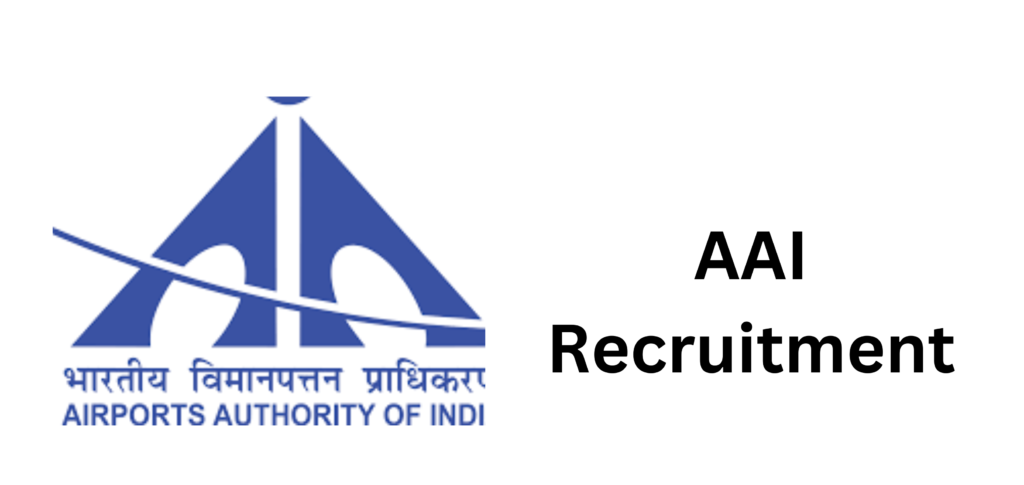
Airport Authority of India Recruitment, ADVERTISEMENT No: 03/2023
Total Marks: 120
Duration: Two hours
Part-A
| General Knowledge, General Intelligence, General Aptitude, English, etc. | Weightage 50% |
Part-B
| Questions on subjects relating to Educational Qualifications | Weightage 50% |
1. Office and Office Management:
- Meaning of office, function of office, primary and administrative functions and importance of office.
- Relation of office with other departments of business organization.
- Concept of paperless office, virtual office, back and front office, open and private office.
- Definition and elements of office management, duties of an Office Manager.
- Office routine, flow of work and office manual.
2. Filing and Indexing:
- Meaning and importance of filing, essentials of good filing system.
- Centralized and decentralized filing system.
- Meaning, need and types of indexing used in the business organization
- Retention and weeding out of papers
3. Office forms:
- Meaning and types of forms used in business organization, advantages, forms control, objectives, form designing, principle of forms designing and specimens of forms used in office.
- Office Record Management- Meaning, importance of record keeping management, principles of record management and types of records kept in a business organization.
4. Communication:
- Meaning, importance, process of communication, objectives of effective communication.
- Forms of communication- oral, written, visual and audio visual.
- Types of office communication internal and external.
- Barrier to communication and overcoming the barriers.
5. Office meetings:
- Notice, Agenda, Resolutions, Minutes and confirmation of the Minutes.
- Abbreviations and terms used in Business Correspondence.
6. Behavioral Skills:
- Personality development, importance of good human relations, understanding organizational culture, management of time and stress, importance of ethics and values.
7. Office Accommodation and Environment:
- Record Maintenance/Management, Office Record Management, importance, filing essentials, classification and arrangement of files, modern methods of filing and modern filing devices
8. Office Correspondence and Mail Services:
- Form letters, meaning, Principles and factors to be considered in designing office forms writing, writing effective sentences, cohesive writing, clarity and conciseness in writing.
9. Main provisions of Official Language Act applicable to Govt. offices:
FAQs
General:
Q1: What is the syllabus for the Junior Assistant (Office) recruitment exam in AAI (Airport Authority of India Recruitment) 2023?
A: The syllabus is divided into two parts – Part-A includes General Knowledge, General Intelligence, General Aptitude, and English, while Part-B focuses on questions related to Educational Qualifications.
Q2: How are the marks distributed between Part-A and Part-B of the syllabus?
A: Each part of the syllabus carries a weightage of 50% of the total marks.
Q3: What is the total duration of the Junior Assistant (Office) recruitment exam?
A: The exam has a duration of two hours.
Office and Office Management:
Q1: What are the primary functions of an office as discussed in the syllabus?
A: The primary functions of an office include administrative functions, maintaining office routines, and managing the flow of work.
Q2: Can you explain the concept of a paperless office?
A: A paperless office refers to an environment where information is stored and processed electronically, reducing the need for physical documents.
Filing and Indexing:
Q1: What is the significance of a good filing system?
A: A good filing system helps in efficient organization and retrieval of documents, which is crucial for smooth office operations.
Q2: What are the different types of indexing methods mentioned in the syllabus?
A: The syllabus mentions the types of indexing used in a business organization, which may include subject indexing, alphabetical indexing, and numerical indexing.
Communication:
Q1: How can barriers to communication be overcome?
A: Barriers to communication can be overcome through proper encoding and decoding of messages, active listening, using appropriate communication channels, and promoting open dialogue.
Q2: What are the types of office communication mentioned in the syllabus?
A: The syllabus mentions oral, written, visual, and audiovisual forms of office communication.
Behavioral Skills:
Q1: Why is understanding organizational culture important?
A: Understanding organizational culture helps in adapting to the workplace environment and building positive relationships with colleagues.
Q2: How does personality development contribute to effective office management?
A: Personality development enhances interpersonal skills, communication, and professionalism, which are essential for effective office management.
Office Accommodation and Environment:
Q1: What is the purpose of modern filing devices in office management?
A: Modern filing devices help in efficient storage, retrieval, and management of documents, contributing to streamlined office operations.
Q2: How is office record management important in an organization?
A: Office record management ensures proper documentation, easy access to information, and compliance with record-keeping regulations.
Office Correspondence and Mail Services:
Q1: What are the factors to be considered in designing effective office forms?
A: Effective office forms should consider factors like clarity, conciseness, coherence, and user-friendliness.
Q2: How does cohesive writing contribute to effective office correspondence?
A: Cohesive writing ensures that ideas are well-connected and flow logically, making the communication more comprehensible and organized.
Official Language Act:
Q1: What are the main provisions of the Official Language Act applicable to government offices?
A: The Official Language Act may include provisions related to the use of the official language, promotion of its usage, and ensuring its implementation in government offices.
#Please note that these FAQs are based on the provided syllabus and may need to be customized according to the specific context of the recruitment advertisement.

